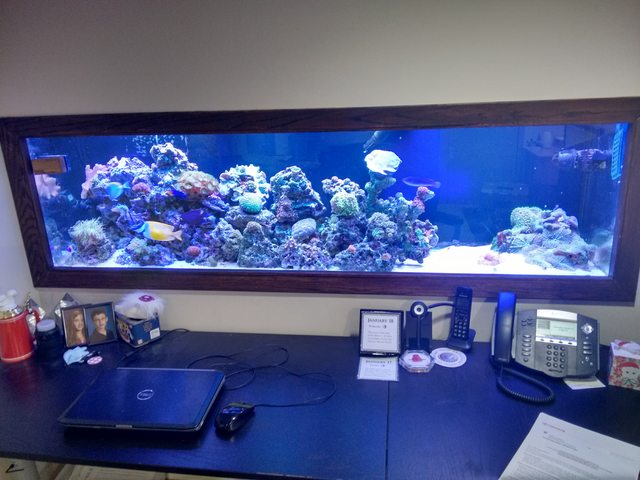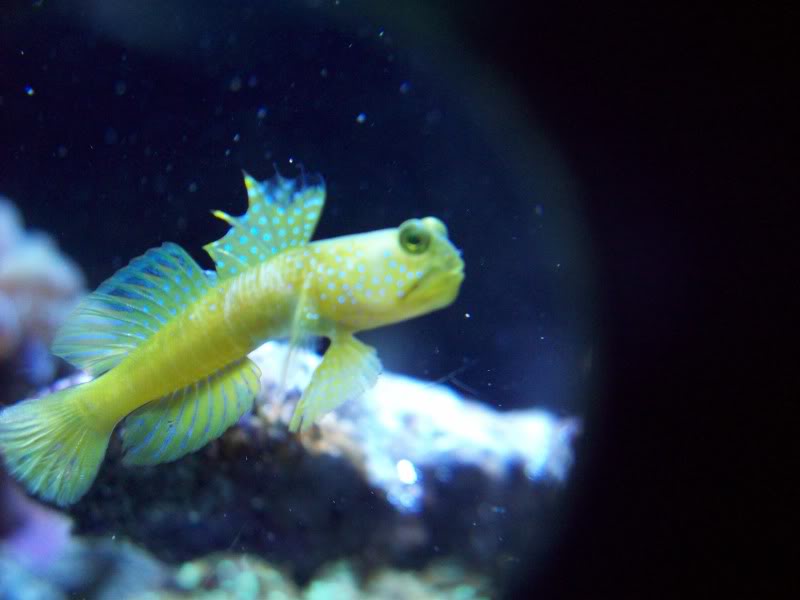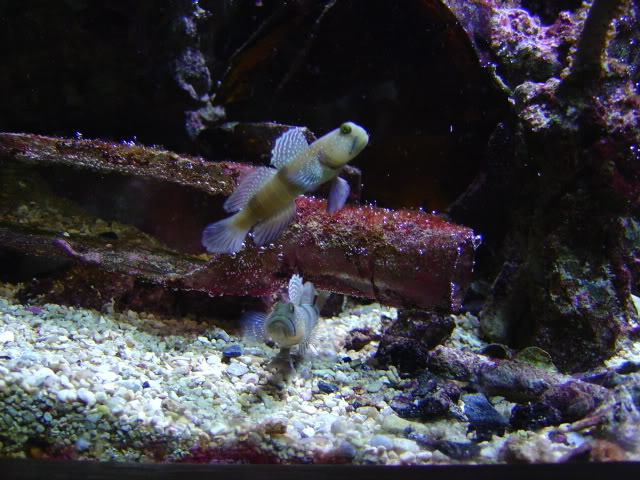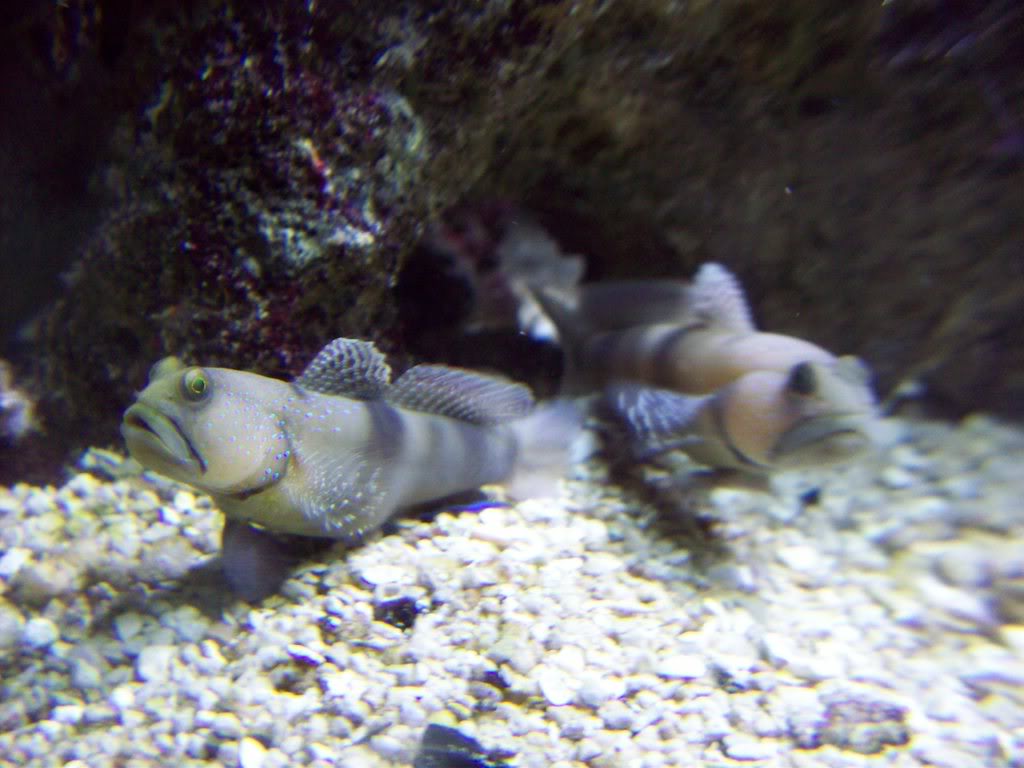melypr1985
totally addicted
View BadgesExcellence Award
Expert Contributor
Article Contributor
Moderator Emeritus
Not true, my pair hosts a hammer.
Technically it's the hammer that "hosts" the clownfish.
Follow along with the video below to see how to install our site as a web app on your home screen.
Note: This feature may not be available in some browsers.
Not true, my pair hosts a hammer.

Nice TankThe issue I have with a tank with ich is that new fish are "up in the air" if they will make it or not.
My tank is four years old now and three years ago I got ich even though I quarantined all fish. I went fallow for 12 weeks, killed 3 fish in QT, put the survivors back in the display and had ich show up a few weeks later. At that point I gave up on the idea of fallow and decided to run a "healthy" tank with overfed fish. Either I messed up the QT, I cross contaminated or I have "super ich" that won't die.
I haven't lost an established fish since then. I have a powder blue tang and kole tang which everyone says are "ich magnets" yet they never show a single bump. New fish are hit or miss though. I still quarantine all new fish since there are far worse parasites out there than ich and many will wipe out a tank. A month ago I add a firefish, coris wrasse and banded sleeper goby that all went through QT. The firefish and wrasse have been great. From about day two the goby turned dark and while he ate he got darker and darker. Last night he didn't eat and I knew he was done. He died last night.
It is something I live with. Three months ago I add a different goby and it last about two weeks. While gobys are said to be disease resistant in my tank they don't last. I like them but I have to give up on them.
Here is the tank. It is in my home office.

Could you post your quarantine protocol please?Thanks for that, for the record I absolutely understand where you're coming from on this and largely agree.
I do not have the experience with reefs that you do. I would suggest that I do have the experience with regards to keeping a strict QT protocol. I kept this with all my various FW tanks going back to my late teens... so about 18 years or so. By and large it was successful, but I lost all sorts over the years to various infections which made it through...
Dats, high end plecs, snakeheads, discus, African and American cichlids all eventually succumbed to either FW WS, fungal or bacterial infections. I believe (and it may only be me) that this was in large part due to two reasons.
1. My occasional sloppiness which led to a pathogen being introduced.
2. The lack of resistance of the fish due to being kept in 'sterile' conditions.
The two are obviously linked. I cannot change me... I honestly could not tell you, in the majority of cases, what went wrong, thus 1 above cannot be changed. What I can change is 2... so why not give it a go?
I believe I have the relevant skills to do so and I totally understand both the concept and the difficulty of keeping a system with pathogens present, but in low numbers.
I run UV, this will not be changed... I anticipate that this will aid in the destruction of a number of pathogens to keep levels below 'infestation'.
The question I would ask is why those tens of thousands of tangs were unable to fight ich? Is it due to an inherent inability to stave of attack from the parasite? Evidence suggests no... otherwise over the millions of years of evolution, they would have died out already. Is it due to their immune response being overwhelmed due to the vast numbers of parasites in a closed system as opposed to the reef? Far more likely.
What I am striving for here is to keep levels of all things (good and bad, chemical and pathogenic) to as close to real reef levels as possible... thus allowing the fishes immune system to respond in a successful manner.
I joke when I say I'll know I've been successful when I can purposely introduce velvet and my fish survive. A fish which already has symptoms is likely near enough dead without some serious intervention (which is well documented on this fine forum). The problem is, we only know these fish have the disease by the symptoms it displays.
My QT protocol under this 'immune' system is still under development, but I will be slowly and carefully introducing all new fish to the pathogens in my tank in order that their immune systems can keep pace.
For anyone interested, I'll add another post shortly to show how I've achieved this with my coral beauty (which was guaranteed disease free when I obtained it).
IMHO and like Paul B, this is just my opinion (with a bit of science and fish guts thrown in), I believe my method is a sustainable and viable alternative to the strict 'sterile' QT protocols adopted by the majority.
Cheers.
They were somewhere early on in the thread:Could you post your quarantine protocol please?
Agreed, part of this experiment was to develop some protocols for how this could be done reliably and over time as an alternative to the 'sterile' QT process.I think if you don't add too many fish at one time to a healthy established tank you will not have a problem. Never quarantined in 30 years. Never had an ich outbreak
Actually I have put tangs in my tank that had ich and it would be gone in a week. not saying the tank was free but the fish were.Agreed, part of this experiment was to develop some protocols for how this could be done reliably and over time as an alternative to the 'sterile' QT process.
Yup, that's the point right there... the fish remain disease free although we know there's ich in the tank... it's diet mostly that does it and I run UV to keep parasite levels to a minimum.Actually I have put tangs in my tank that had ich and it would be gone in a week. not saying the tank was free but the fish were.
It's still early days and I intend to also do the following (when funds allow in the case of lighting)
1. Upgrade lights and run as closely as possible to reef lighting conditions.
Nice tankThe issue I have with a tank with ich is that new fish are "up in the air" if they will make it or not.
My tank is four years old now and three years ago I got ich even though I quarantined all fish. I went fallow for 12 weeks, killed 3 fish in QT, put the survivors back in the display and had ich show up a few weeks later. At that point I gave up on the idea of fallow and decided to run a "healthy" tank with overfed fish. Either I messed up the QT, I cross contaminated or I have "super ich" that won't die.
I haven't lost an established fish since then. I have a powder blue tang and kole tang which everyone says are "ich magnets" yet they never show a single bump. New fish are hit or miss though. I still quarantine all new fish since there are far worse parasites out there than ich and many will wipe out a tank. A month ago I add a firefish, coris wrasse and banded sleeper goby that all went through QT. The firefish and wrasse have been great. From about day two the goby turned dark and while he ate he got darker and darker. Last night he didn't eat and I knew he was done. He died last night.
It is something I live with. Three months ago I add a different goby and it last about two weeks. While gobys are said to be disease resistant in my tank they don't last. I like them but I have to give up on them.
Here is the tank. It is in my home office.

I did consider it... but we just don't get the sunlight here... I'm in Norfolk, UK.Any chance you can use solar tubes?
I haven't lost an established fish since then. I have a powder blue tang and kole tang which everyone says are "ich magnets" yet they never show a single bump

You are of course right... which i guess was the point of the post...Unless a hobbyist performs a necropsy and is able to ID pathogens accurately through microscopic examine, takes tissue samples from gills, and organs to rule out disease than any hobbyist can not say definitively their fish did not succumb to a disease process. In the wild there are specific animals that eat parasites, the fish are not confined to small habitats where the number of parasites maybe left unchecked secondary to lack of natural predators. . Animals like humans exhibit a decline in the immune response as they age this is a fact, humans and fish may die from natural organ failure secondary to advanced age, but they commonly die from a specific disease process, no magical theory or amount of pure speculation is going to change these facts of life.
Me too.I proudly count ich and brook and whatever else wants to join them, as part of my ecosystem, a thriving, growing, living and breeding reef in a box.




